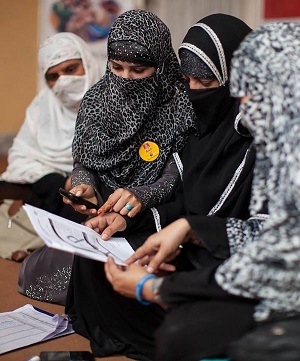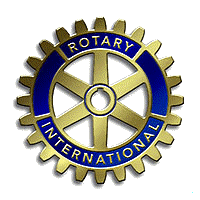Pakistan and Nigeria replace paper-based reporting with fast, accurate cellphone messaging
Mobile phones and simple text messaging may be the keys to victory in the world’s largest public health initiative: the eradication of polio.
As the disease retreats from the global stage, thriving in only a few remote areas in three countries, it’s up to health workers to deliver vaccines and share information with speed and accuracy.

Rotary and its partners in the Global Polio Eradication Initiative are strengthening the lines of communication by giving cellphones to health workers in Pakistan and Nigeria, where a single text message could save a life.
In Pakistan, Rotary has been working to replace traditional paper-based reporting of maternal and child health information, including polio immunization data, with mobile phone and e-monitoring technology.
Community health workers across the nation have received more than 800 phones through a partnership with Rotary, the Pakistani government; Telenor, the country’s second-largest telecommunications provider; and Eycon, a data monitoring and evaluation specialist. Organizers plan to distribute a total of 5,000 cellphones by the end of 2018.
“Traditional paper reporting was misleading our program. The information we were getting was not entirely accurate. This gave us the sense that we were doing better than we actually were,” says Boniface Igomu, program coordinator of Rotary’s Nigeria PolioPlus Committee. “With cellphones, we’re identifying problem areas quickly and acting accordingly.”
The country has yet to see a polio case this year.
